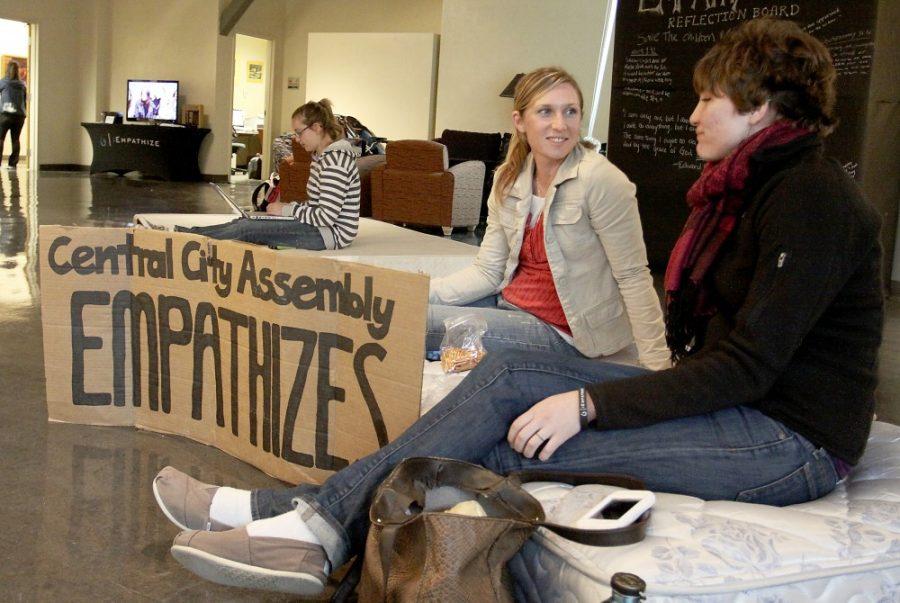A national human rights awareness organization is hosting presentations in the Union Gallery of the Student Union Memorial Center throughout the week to explain the issues of sex trafficking and child exploitation to UA students.
The iEmpathize group, which focuses on combatting child trafficking, is holding an exhibit in the gallery, as well as events aimed to engage the public throughout the week. Pictures, artifacts and videos from Southeast Asia, Russia, the U.S. and Mexico are placed around the gallery, allowing viewers to see children affected by trafficking and exploitation.
“Our mission is to eradicate child exploitation and engage culture in creative solutions,” said Brad Riley, the founder and president of iEmpathize. “It’s a cultural issue, not just a criminal issue, and we need culture to rise up against it.”
The iEmpathize group promotes their mission nation-wide, and some of the events show up at universities and galleries, Riley said. Union Gallery curators contacted him about installing a social justice media exhibit at the UA.
Each artifact, photo and frame of film is authentic to the stories of the kids they serve, Riley said. The iEmpathize media team, which works closely with former victims of child trafficking, collected each piece personally.
“I’ve heard about a lot of these facts before, but I’ve never seen pictures like this,” said Kayla Mlodzik, a communications junior who viewed the exhibit. “It definitely gives you perspective.”
Along with the exhibit, the iEmpathize group is hosting a “mattress vigil” that stands as a silent protest against the issue. For $10 each, attendees sit on a mattress for 15 minutes in order to empathize with victims of child trafficking.
“This is a symbolic protest that we’re not OK with the idea of girls being sold for sex,” Riley said. “Students can protest that by symbolically stepping into their shoes.”
Future legislators, business leaders, social workers and educators come to the universities, which is what makes university visits particularly strategic, Riley said. The long-term solution entails a growing movement of activists, some of whom come from the same universities that iEmpathize visits.
“The whole point of iEmpathize is to take people’s apathy and turn it into empathy,” said Emily West, a pre-business sophomore and iEmpathize volunteer. “So, I think if people come to the exhibit and see these pictures of these real victims, then hopefully it’ll touch their heart and make them want to help stop the sex trafficking and child slavery.”
The exhibit’s last day on campus is today and the organizers will host an event on the UA Mall at 5 p.m. showing an outdoor mini documentary series.
“I think it would blow people’s minds if they saw this,” Mlodzik said. “We get in our routine here in our American culture and we have to realize this is a real issue. This isn’t something you just hear about, this is someone’s life and you have to understand that.”









